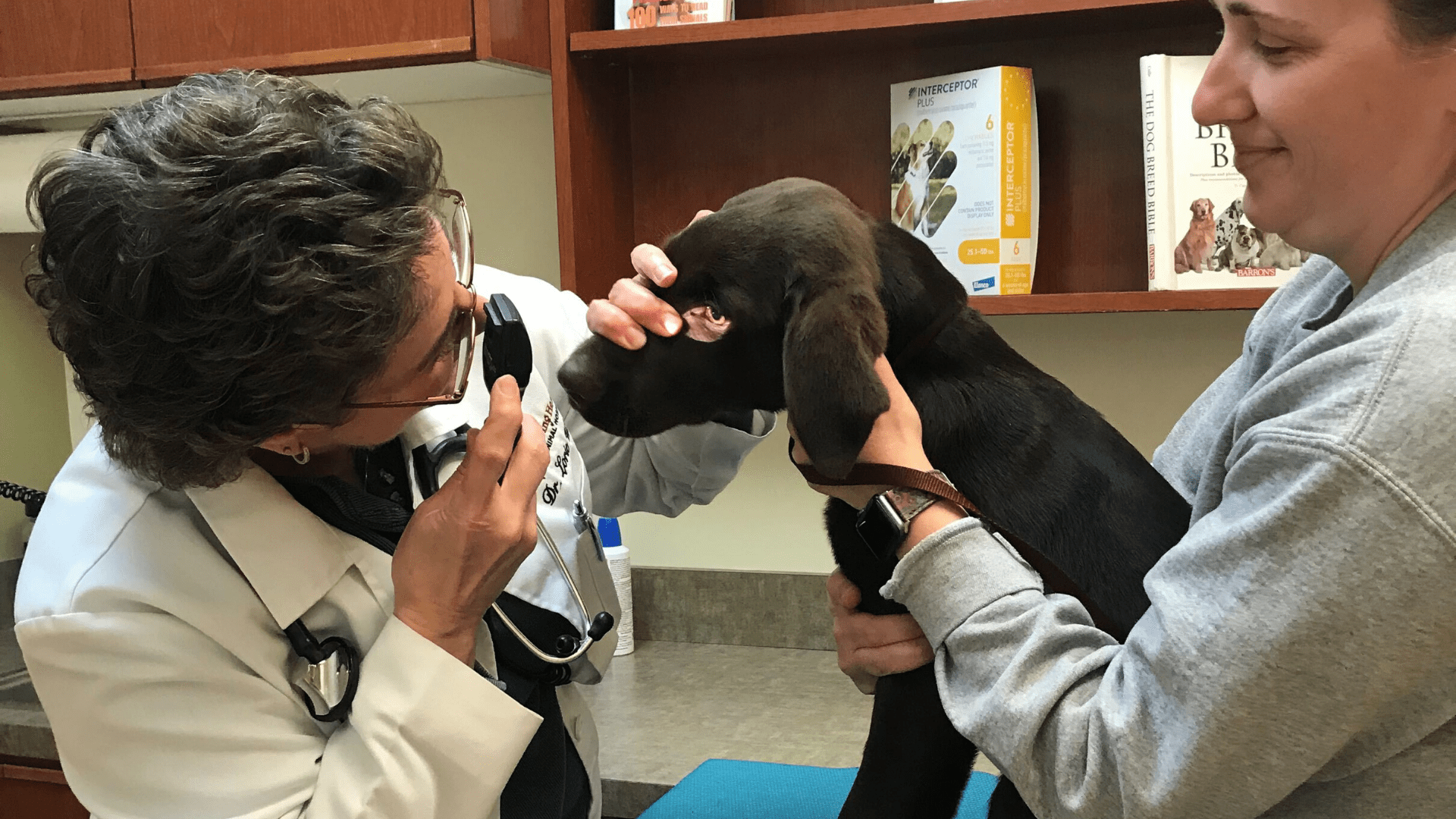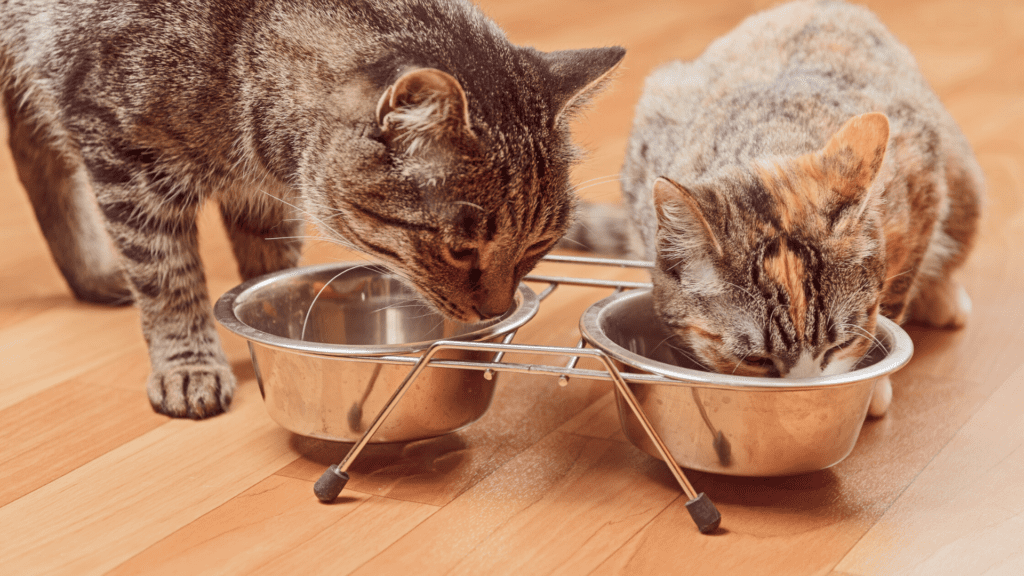
It may seem odd that a veterinarian is offering advice on how to not spend money on pets but here me out. All vets want their patients to live long healthy lives. It is why we do what we do. Sometimes that is not possible due to inherited conditions or traumatic injuries. However, for most pets, the best way to save money is to do a few simple preventive measures.

First, keep your pets roaming limited to your yard or leash walks
Animals get into mischief, just like toddlers, when left to their own devices. As human as they seem, they still cannot understand why something that smells enticing (like dead things) and tastes good (like antifreeze) can mean a trip to the doctor.
Over the years we have certainly scratched our head to wonder why a dog would eat fabric or rocks. But they have and they do. Cats are slightly more discerning, but they eat bugs and mice. Both carry parasites that then infect your cat. Surgical removal of things like corn cobs, kids’ toys and socks can be very dangerous for your pet and expensive due to the time, skill and team effort involved to remove these objects.
Pets outside their safe space are also more subject to attack by other animals or to be hit by cars. Remember that small pets are tempting prey for hawks and falcons so keep an eye out even when they are in your back yard. By the way, cats can be taught to walk on a leash and enjoy a trip around the block just like dogs.
Avoid letting your dog hang its head out the window as bits of debris can hit the eyes and flopping ears can cause broken blood vessels resulting in bleeding under the skin. Never let your dog ride in the back of a truck. A necessary slam on the brakes has tossed unfettered dogs out onto the road and into traffic. Road rash, broken bones and worse have occurred. We have seen it and you do not want to!

Second, plan for routine maintenance.
Like putting oil in your car and rotating the tires, routine exams, dental cleanings, and vaccinations keep your pet’s “engine” running smoothly. The process of the physical exam involves a doctor laying hands, eyes, ears and even nose on the patient.
The Doctor’s hands feel the skin for lumps, abnormal oiliness, or dryness. They exam coat condition as the hair can indicate the onset of major issues. The coat is also examined for parasites such as fleas, ticks, and mites.
The limbs and pelvis are manipulated to observe any painful joints, swellings, or poor neurological reflexes. The veterinarian’s ears listen to heart sounds for normal or rapid beats, arrythmias or murmurs and to the lungs for clear or wheezy breathes. The nose smells the ears for odd yeasty odors and the breath for signs of gum disease and infection. The doctor’s eyes look deep into the patient’s eyes for signs of cataracts and deep into the ear canal for inflammation or mites.
The mouth is opened for a quick observation of the tissue, looking for abnormal growths or swelling, gingivitis or tarter build up on the teeth. But doctors are also looking for damaged teeth or misalignment that could be causing pain. Puppies will sometimes fail to lose their baby teeth and on rare occasions will develop two full sets of teeth. This causes lots of issues and all those deciduous teeth must be removed to have a healthy mouth.
The importance of proper vaccinations cannot be stressed enough. The recent COVID-19 experience has shown us what can happen when a disease has no treatment or vaccine and is highly transmittable. Core vaccinations such as distemper combinations protect pets from upper respiratory infections, parvo vaccination protects from a gastrointestinal disease which is highly infectious and most of the time fatal in dogs if left untreated. Rabies is deadly to pets and humans and it is the law that pets must be vaccinated. If you read our previous blog on ticks, you will remember that Lyme is now present in the Charlotte area. Another disease that is a danger to humans and animals is Leptospirosis.
If all this seems too much to afford in one visit you can certainly take advantage of our subscription wellness plans and pay a monthly fee to cover routine care. These plans are described on our website.

Next, feed quality food.
Hypocrites said, “let food be thy medicine” meaning we are what we eat. This is true for our pets. Many foods on the market have great ad agencies but no board-certified veterinary nutritionists on staff. Recent information has come out from veterinary cardiologists about the damage to the heart caused by unbalanced grain free diets marketed as “healthy”. There are many good food brands on the market that are backed by years of science and research. Some pet owners will cook for their pets and yet others believe that NOT cooking and feeding raw diet is the way to go.
We are happy to discuss your pet’s dietary needs and share the latest research by boarded veterinary nutritionists to help you make the best decision for your pet’s needs. Typically, the better foods contain more digestible ingredients that have greater bioavailability to the body than the less expensive brands. If you would like to learn more about pet nutrition visit Tufts Cummings School of Veterinary Medicine’s Petfoodology page for solid, science-based information.

Finally, provide enrichment in the form of mental stimulation and exercise.
Pets are smart. They may be a lot smarter than we think based on new cognitive research that shows dogs can recognize hundreds of words and use reasoning to solve problems.
One friend could not figure out how her small dog was getting on the counter and eating the dog treats from the jar. She set up a video camera and left for work. Upon returning and hitting play, she watched her clever little terrier push a bar stool over to the counter so she could jump to the seat and then hop on the counter…problem solved, and reward reaped!
When pets get bored, they will sometimes develop destructive behaviors like chewing furniture, digging up carpet, house soiling or even turn energy on themselves by chewing or licking off their fur. This can also be a sign of anxiety. Trainers will tell you a “tired dog is a good dog”.
Obviously, we are not talking about running a pet to exhaustion but healthy daily activities such as fetch (no sticks please), swimming or a good long walk. Remember to allow your dog to smell along the walk as this stimulates their brain in a healthy way – much like reading a good book will do for us humans. Dr. Marty Becker laughingly calls this reading “pee mail” as dogs visit every mailbox post along the route.
Pet Health insurance is a good safety net. We think it is such a good idea we have it for our staff. A little planning and forethought can certainly save you on a major bill and even save your pet’s life if they need a procedure out of your financial comfort zone. If you need help deciding on a plan check out Pawlicy Advisor for help with risk assessments and policy choice.

Do not forget that Caring Hearts Animal Hospital can offer you manufacture’s deals on monthly preventives often “netting” the per dose price below online retailers and providing you with safely handled, stored and manufacturer backed products.
We have seen online medications purchased that would have expired due to short dates before the patient would use them. Fake products are also out on the internet. The FDA has an overwhelming list of documents siting false claims and counterfeit products they have acted against on their website. Sometimes a “deal” is not a “deal”. Not wasting money on ineffective or shortly expiring products is another way to save.
As always, we are here to help you with any questions. We want to be considered your partner in creating a wonderful healthy life for your pets.
